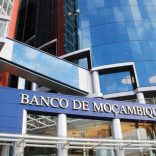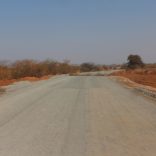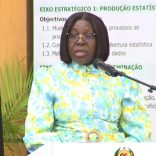Mozambique: South Korea disburses one million dollars for victims of terrorism - AIM report
Bank of Mozambique increases interest rates – AIM

File photo: Lusa
The Monetary Policy Committee of the Bank of Mozambique (CPMO), meeting on Wednesday, increased the Bank’s key interest rates by 300 base points.
Thus the Interbank Money Market Rate (MIMO), used by the central bank for its interventions on the interbank money market to regulate liquidity, rises from 10.25 to 13.25 per cent. There has never been such a dramatic increase since MIMO was introduced in 2017.
Likewise, the Standing Lending Facility (the interest rate paid by the commercial banks to the central bank for money borrowed on the Interbank Money Market) also rose by 300 base points, from 13.25 to 16.25 per cent. The Standing Deposit Facility (the rate paid by the central bank to the commercial banks on money they deposit with it) rose by the same amount, from 7.25 to 10.25 per cent.
The CPMO left the compulsory reserve coefficient, the amount of money that the commercial banks must deposit with the Bank of Mozambique, unchanged, at 11.5 per cent for local currency and 34.5 per cent for foreign currency.
A statement from the CPMO justified the increase in interest rates by citing “a substantial revision upwards of the prospects for inflation in the medium term”. The Bank expects the rate of inflation to increase because of “the continual depreciation of the metical, in an environment of greater worsening of risks and uncertainties, notably the negative consequences of the accelerated spread of Covid-19, and the occurrence of natural disasters, as well as military instability”.
The CPMO noted that in late 2020 the inflation rate was already speeding up. Annual inflation rose from 2.98 per cent in September to 3.52 per cent in December. The underlying inflation rate (excluding those prices of goods and services that are administered by the government, and fruit and vegetable prices) rose from 2.92 to 5.1 per cent.
Prices will continue to rise, the CPMO warned, as the depreciation of the metical is passed on to domestic prices, and government measures to hold down prices during the Covid-19 pandemic come to their end.
Since the last meeting of the CPMO, in December, “risks and uncertainties have worsened substantially”, the Bank said – referring not only to the storms that have hit Mozambique, and to the terrorism in the northern province of Cabo Delgado, but also to the appearance of new strains of the coronavirus, the volatility of commodity prices, and the strengthening of the US dollar. These risks were likely to continue in the short and medium term.
The Bank forecast that the recovery of economic activity in 2021 will be slower than initially thought, partly because the increased restrictive measures imposed due to the accelerated spread of Covid-19, were having an effect on the leisure and hospitality sector, and partly because the military situation in Cabo Delgado was constraining work on the liquefied natural gas projects.
The CPMO called for “the deepening of structural economic reforms, seeking to strengthen institutions, improve the business environment, attract investment and create jobs”.
Pressure on the public finances was increasing, it noted. Military conflict, natural disasters and the Covid-19 pandemic would all require “a greater financial effort from the state, increasing concerns about the fiscal posture in 2021”.
One bright spot, in the CPMO’ view, was that, by 22 January, Mozambique’s net international reserves had risen to 4.086 billion US dollars, enough to cover more than six months of imports of goods and services.













Leave a Reply
Be the First to Comment!
You must be logged in to post a comment.
You must be logged in to post a comment.